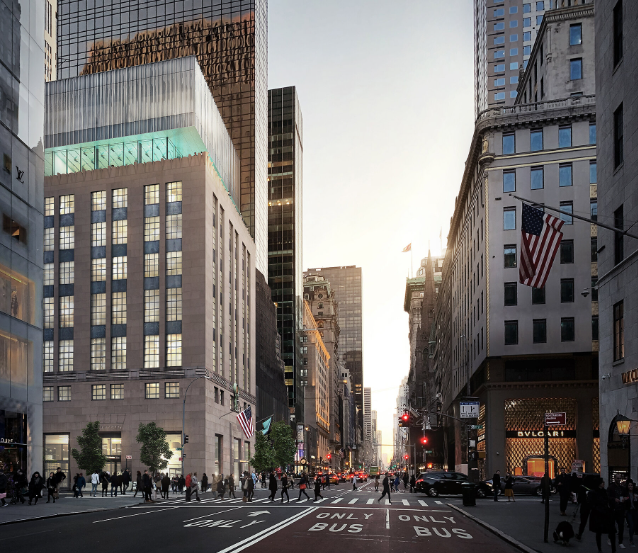Introduction: A City of Resilience and Renewal
New York City, a global beacon of culture and commerce, has always been a city of resilience and transformation. As the city emerges from the challenges of the migrant crisis, the transition of hotels from emergency shelters back to traditional hospitality underscores NYC’s ability to adapt and thrive. Albert Dweck, a visionary leader in real estate, sees this shift as a turning point for the city’s hospitality sector and an opportunity to unlock its immense potential.
Easing the Crisis: NYC’s Humanitarian Response
The migrant crisis that began in 2022 tested New York City’s infrastructure and compassion. Over the past two years, the city housed approximately 229,000 migrants and asylum seekers, providing 10,000 beds through contracts with hotels and other facilities. Mayor Eric Adams’ recent announcement of shelter closures, including nine hotel sites, reflects significant progress in addressing the crisis. “New York’s response was a testament to its enduring commitment to humanity,” Dweck said. “The city stepped up when it was needed most, demonstrating leadership and compassion.” As 78% of the migrants have moved on to the next phase of their journeys, the city’s focus now shifts to revitalizing its hospitality industry.
From Shelters to Hospitality: The Transition Begins
Among the hotels transitioning back to traditional operations are iconic properties such as The Stewart Hotel and The Watson Hotel in Manhattan. The Stewart Hotel, set to be converted into a 625-unit apartment building, highlights the city’s innovative approach to repurposing spaces to meet evolving needs.
Albert Dweck views this transition as an opportunity for both the hospitality and real estate sectors. “Transforming these hotels back into thriving assets is not just about business; it’s about breathing life back into these iconic spaces,” he explained.
Crisis to Opportunity: A Boon for NYC’s Tourism Industry
The resurgence of tourism plays a crucial role in this transformation. NYC & Co., the city’s tourism marketing arm, projects that visitor numbers will return to pre-pandemic levels in 2025. This uptick, combined with restrictions on short-term rentals like Airbnb and VRBO, is creating a tighter hospitality market where demand outpaces supply.
For Dweck, this is a moment of opportunity. “The revival of tourism in New York City signals a promising future for hotels. With demand surging, owners have a chance to reimagine their properties and maximize their potential,” he said.
Challenges and Opportunities in Hospitality Transformation
The transition from migrant shelters back to traditional hospitality brings its own set of challenges. Renovations, repositioning, and marketing efforts will require significant investment and strategic planning. Market insiders, like Moelis & Co.’s Matthew Janukowicz, highlight the financial considerations of this shift.
Dweck acknowledges these challenges but remains optimistic. “Investing in these properties is not just about short-term gains. It’s about creating sustainable, profitable assets that contribute to the city’s vibrancy,” he emphasized.
The Role of Real Estate Innovation
“Adaptive reuse is the future of urban development,” Dweck said. “By thinking creatively and addressing the needs of our communities, we can create spaces that inspire and endure.”
A Tight Market, Record Prices: Hospitality’s Bright Future
The combination of limited new development, restrictions on short-term rentals, and the reintegration of former shelter hotels into the market is creating a tight hospitality landscape. This environment has enabled hotel owners to raise prices to record highs, signaling robust demand and profitability potential.
For Dweck, this dynamic underscores the resilience of NYC’s real estate market. “New York City’s hospitality sector is a testament to its enduring appeal. Investors and operators who embrace this opportunity stand to benefit from the city’s boundless energy and global allure,” he said.
A Community-Focused Approach
While the hospitality industry prepares for a new era, Dweck emphasizes the importance of balancing profitability with community impact. The successful transition of former shelter hotels must consider the needs of local communities, ensuring these spaces contribute positively to their neighborhoods.
“Real estate is about more than buildings; it’s about people,” Dweck explained. “We have a responsibility to create spaces that uplift communities and enhance the urban fabric of New York City.”
Looking Ahead: The Path to Prosperity
As New York City moves beyond the migrant crisis and reclaims its position as a global tourism hub, the opportunities for growth and innovation are immense. The return of former shelter hotels to traditional hospitality operations represents a pivotal moment for the city’s real estate market.
Albert Dweck is optimistic about the road ahead. “New York City is at the dawn of a new chapter. By embracing change and seizing opportunities, we can build a brighter future for the hospitality industry and the city as a whole,” he said.
Conclusion: Resilience, Renewal, and Opportunity
New York City’s response to the migrant crisis demonstrated its unwavering resilience and commitment to compassion. As the city transitions from crisis management to economic revitalization, the hospitality sector stands at the forefront of this transformation.
For Albert Dweck, the journey of these hotels from shelters to thriving assets symbolizes the spirit of New York City. “This city has always been defined by its ability to overcome challenges and reinvent itself,” he said. “The revival of the hospitality sector is a testament to that resilience and a reminder of the boundless opportunities that lie ahead.”
With tourism on the rise, innovative real estate strategies taking shape, and a community-focused approach guiding the way, New York City’s hospitality industry is poised for a remarkable renaissance. For Dweck and the many visionaries shaping this transformation, the future is bright, and the possibilities are limitless.
